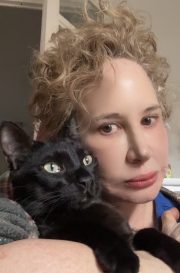Key Conditions for Reader Suspense:
Part 2 – The Three Problem Types
by John D. Brown

In the last post, I talked about the idea that suspense is a reader concept—it happens in the reader. With this post we begin looking at the key conditions that build reader suspense. Stories are made up of four main ingredients: character, setting, problem, and plot. All of these are important, but problem is the engine that makes suspense go. So we’re going to start there.
Form follows function, so what types of problems lead to us hoping and fearing for a character?
I see three main types.
Problem Type 1: Danger/Threat
In this type of problem, there’s a danger or threat to some aspect of the character’s happiness that is significant enough that the READER can sympathize.
With these problems we HOPE the character avoids or eliminates the danger, but we FEAR they may not. There are many aspects of happiness that might be threatened or in danger. I’ve listed below those that raise my FEAR and would raise my fear for someone else. I’ve stated them in first person, but you can think about them in third.
1. Life
In these situations my life is in danger or threatened. People are out to kill me (Hunger Games); I’m going to starve or freeze to death (“To Build a Fire”); there’s a shark in the water who would like a taste (Jaws).2. Security & well-being
My security and physical well-being is in danger or threatened. These include all sorts of situations where bullies threaten me with violence or where I might be maimed in some way. Or I begin to lose some vital function—sight, hearing, speech, my ability to think, etc.3. Relationships
In these situations my inclusion in a group is threatened. My love, friendship, relationship, feeling of belonging or of being valued are endangered. For example, I’m ostracized by a group, shunned, discriminated against. Or maybe my girlfriend begins to look at other men and I fear losing her, or my son and I become estranged and I fear losing him. This can even be a physical separation like in Taken (daughter kidnapped for the slave trade) or Not Without My Daughter (daughter kidnapped by husband).4. Meaningfulness
In these situations my sense of fulfillment of doing something worthwhile is in danger. I’m threatened with a life of drudgery. You can see this at work in the beginning of The Incredibles where Bob, Mr. Incredible, has to work in a deadening insurance office. But it might be someone whose future or ability to do things that are meaningful to them is being threatened. For example, a boy who desperately wants to play the piano has his piano and is forced to do something else.5. Freedom Anything threatening our freedom.
It might be slavery or blackmail or government control or a number of other things.6. Ownership
In these situations my ability to retain and use my possessions is threatened. Any time something precious is stolen from me, my happiness is affected.7. Other aspects?
These are the main aspects of happiness I’ve identified that seem significant enough to raise fears. If you think you know another, please post a comment.
Problem Type 2: Lack/Opportunity
In this type of problem, a character has a lack of and opportunity for some aspect of happiness that is significant enough that the READER can sympathize. These are often about characters in some kind of hardship. The lacks, hardships, and opportunities all have to do with the same aspects of happiness as listed above. In these situations we HOPE the character is able to fill the lack; we HOPE they will be able to grasp this opportunity for happiness. But we also FEAR they will fail.
If you think about love stories, they are all stories of lack/opportunity. She’s alone, without a lover, or a satisfying and loving relationship, and she meets someone. Suddenly, she has an opportunity for happiness. As readers we immediately began to hope she will find that relationship wonderfulness and fear she might not.
In the movie October Sky a young boy lives in a coal mining community. But it’s not his thing. He suddenly gets an opportunity at school to do something with science. This is his ticket to doing something meaningful. We HOPE he doesn’t miss it, but we FEAR he might.
Problem Type 3: Mystery
A character encounters a mystery that is significant enough that the READER can sympathize or feel curiosity about it.
The first two types of problems center on happiness. They raise suspense and sympathy and worry in the reader. This last type of problem centers more on raising curiosity in the reader. We HOPE the character solves the mystery because we want to know the answer as well, but we FEAR they might not.
Very often these types of problem are paired with some aspect of happiness. The vast majority of murder mysteries, cop stories, and courtroom dramas do this. In fact, many happiness problems are paired with mysteries and puzzles. Those are the three types. But it’s not enough to give our characters problems. These problems have to be hard to solve. I’ll discuss that in the next post.
Happiness,
John
John Brown is an award-winning novelist and short story writer. Servant of a Dark God, the first book in his epic fantasy series, was published by Tor Books and is now out in paperback. Forthcoming novels in the series include Curse of a Dark God and Dark God’s Glory. He currently lives with his wife and four daughters in the hinterlands of Utah where one encounters much fresh air, many good-hearted ranchers, and an occasional wolf.


